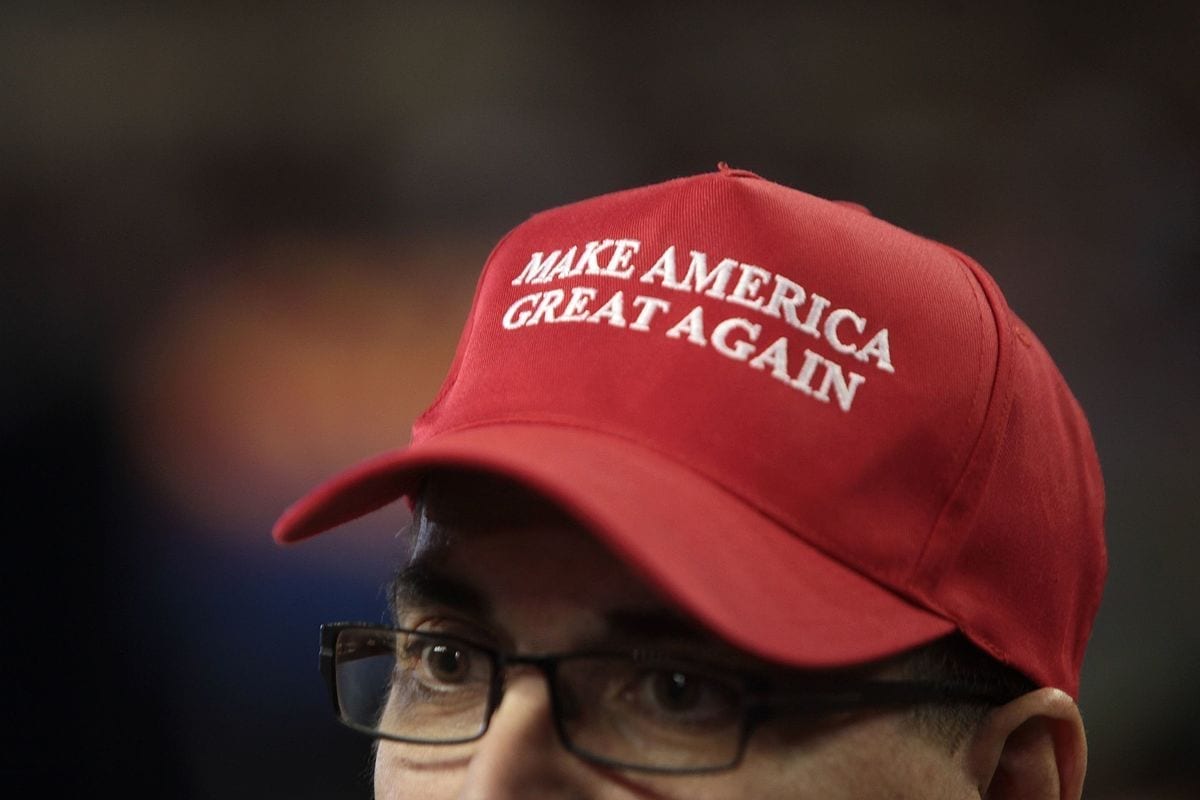On Thursday, the Supreme Court struck down a Minnesota law banning voters from wearing political apparel at polling places.
In what the New York Times describes as a ‘cautious 7-2 decision,’ the court recognized the values underlying Minnesota’s intent. Nevertheless, Chief Justice John G. Roberts Jr. opined that the state’s law wasn’t “capable of reasoned application.”
Minnesota’s since-rescinded legislation isn’t unique—but it was sufficiently broad to catch the attention of the Supreme Court. It allowed election officials to warn off voters wearing any “political badge, political button or other political insignia […] at or about a polling place on primary or Election Day.”
The Times writes that past applications of the law were sweeping.
A fervent Trump supporter, for instance, wouldn’t be able to cast a ballot while donning a ‘Make America Great Again’ hat. But the same restrictions were extended to labor union apparel or pro-N.R.A. t-shirts.
State officials say they intended to crate “an orderly and controlled environment without confusion, interference or distraction.”

The case, according to the Times, began ‘when members of the Minnesota Voters Alliance’ bore down on polling stations across the state. Wearing Tea Party t-shirts and buttons saying “Please I.D. Me,” the activists—who claim to support ‘election integrity’—were asked to cover the messages.
None of them would have been turned away from the booths if they refused to cooperate, but they all would have risked prosecution under Minnesota law.
An initial case filed against the state was tossed by an appeals court in St. Louis.
“Even if Tea Party apparel is not election-related, it is not unreasonable to prohibit in a polling place,” wrote Judge Duane Benton. “In order to ensure a neutral, influence-free polling place, all political material is banned.”
In his refutation, Chief Justice Roberts said the lower court’s decision, along with Minnesota’s old legislation, went too far. He cited similar laws in California and Texas as better alternatives to the North Star State’s mandate.
“Casting a vote is a weighty civic act, akin to a jury’s return of a verdict, or a representative’s vote on a piece of legislation,” wrote Roberts. “It is a time for choosing, not campaigning. The state may reasonably decide that the interior of the polling place should reflect that distinction.”
However, Roberts accused Minnesota of failing “to articulate some sensible basis for distinguishing what may come in from what must stay out.”
Minnesota Secretary of State Steve Simon said that, despite the court’s decision, he appreciates its recognition of “the vital interest of maintaining an ‘island of calm’ in our polling places.”
“The [Minnesota] legislature must now change Minnesota law so that it is entirely consistent with the right of free speech and expression—while also maintaining the sanctity of the polling place,” said Simon.
Sources
Opinion analysis: Court strikes down Minnesota ban on “political” apparel at the polls
Supreme Court Strikes Down Law Barring Political Apparel at Polling Places
Supreme Court throws out Minnesota ban on voter political apparel


Join the conversation!